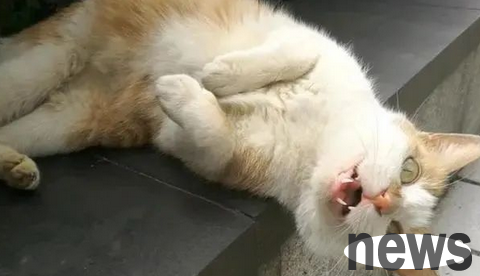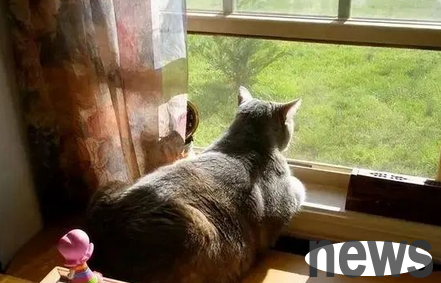Even cats who seem to be happy forever may encounter sadness and stress. They do not express themselves in words, but they convey their emotions through some actions. When a cat is "sad", have you noticed these 6 behaviors?

Crying
Some cats may cry when they are sad. Their eyes may become moist or have abnormal discharge. This may be because they feel sad or painful. If your cat has abnormal eyes, take it to the veterinarian in time to ensure there are no other health problems.
Exceptional cries
Cats may make different calls when they are sad. Their screams may become sharper or deeper, or become more frequent and uneasy. These changes may be their way of expressing emotions, or they may be a way of seeking attention and comfort.
Overpoxic hair licking and biting hair
Cats may over-lick a certain part, or even bite hair. This may be their way of comforting themselves, or it may be because they feel stressed or uneasy. If your cat is overly licking or biting hair, try giving them some soft toys or blankets to give them more opportunities to self-comfort and relax.
Reduced social behavior
Cats may reduce interactions with other pets or people and choose to be alone. This may be because they are dealing with their own emotional problems, or because they feel uncomfortable or uneasy. As owners, they can provide them with a quiet and comfortable environment, giving them enough time and space to adjust themselves.

Overdependence on the owner
When cats feel sad, they may seek their owner's attention and comfort more frequently. They may keep following their masters, or lie down next to them for caressing. This over-dependence behavior may be that they are seeking a sense of security, or because they want more care and support.
As the owner, you can give them more caress and companions, and occasionally reward cats with some snacks, which not only makes the cat happier, but also makes it feel safe and comfortable.
Reduced appetite
When cats feel sad, they may lose interest in food. Even their favorite foods may just smell them and then walk away. This may be because emotional troubles affect their appetite.
Prolonged loss of appetite may cause health problems in your cat, so if your cat does not eat for a long time, you should seek help from a veterinarian immediately.